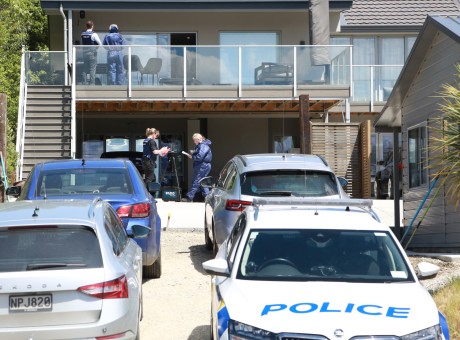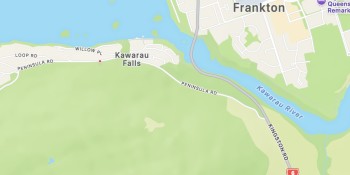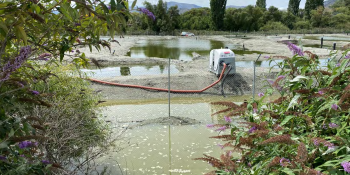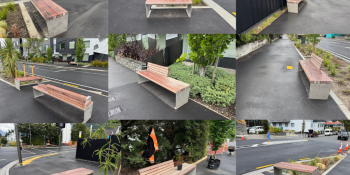Coronavirus: PM to reconsider 'essential businesses'
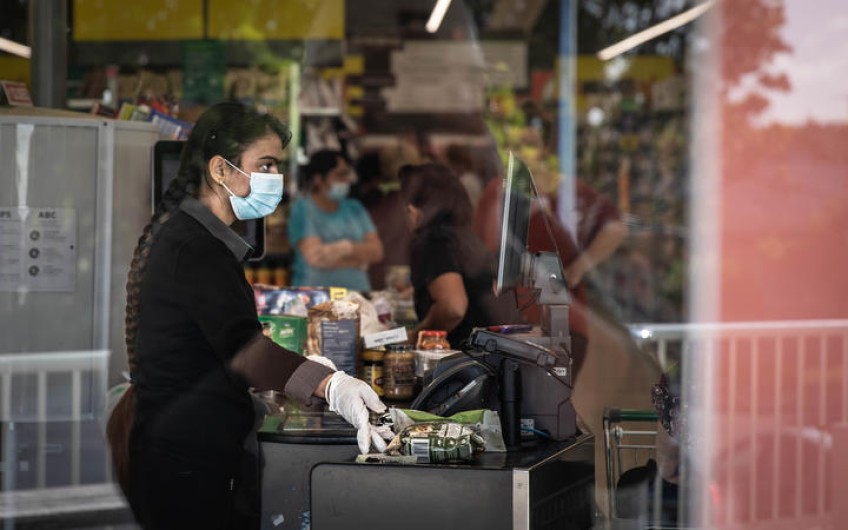
Ministers will meet today to discuss whether more services should be deemed to be essential and allowed to be open for business.
Halal butchers, difficulty getting grocery deliveries, and whether to allow trading on New Zealand's Easter holidays when shops are traditionally shut, are among issues that have arisen under the national level 4 lockdown to prevent the spread of coronavirus.
Prime Minister Jacinda Ardern told Morning Report a group of ministers are meeting every day to discuss details of the lockdown and government response to Covid-19, and tackle issues as they arise.
"When it comes to exemptions for essential services we are keeping those to a minimum," she said.
Many shops, including supermarkets, are normally banned from opening and trading on Good Friday and Easter Sunday, but because of demand for essential services, and particularly supermarkets, the ministers are considering whether changes are needed.
However Ardern says the Easter closures could actually help some shops keep up with demand.
"We are in an extraordinary situation, but I want a pragmatic response, if the supermarkets tell us 'we actually need that time to restock shelves that we haven't been able to catch up on', then that's in the best interest of New Zealanders as well.
"It's such a rare thing now, the visits to the supermarket, it's quite time consuming because people want to make sure there aren't too many people in the shop, so I'd rather make sure that when they go, the things they are looking for are there.
"I'm hoping to have a bit more certainty over that in the next 24 to 48 hours."
She acknowledged that many people were having difficulty getting grocery deliveries, including her grandfather.
"Supermarkets are wanting to prioritise shopping for the most vulnerable. My message for New Zealanders would be if you can go to the supermarket, if you're not in that vulnerable cohort, then my preference would be that we prioritise delivery slots for those who are the most in need.
"Equally, to those New Zealanders who shouldn't be leaving their homes, please do reach out to others - there will be plenty who will want to help you - ask your neighbour, ask a friend, ask family."
Concerns have arisen that regular supermarkets do not supply halal meat, and ministers are investigating whether they can begin to provide for those needs and maintain halal certification.
Ardern said government is not taking a formal stance on whether supermarket workers, and other front-line essential service providers should be getting paid more, because of the risks of working in front-line jobs during the shut-down.
"That will be for those supermarket operators - though I'm sure in these extraordinary times, the public of New Zealand would be well pleased to see them treated well for the work that they are doing now."
However, the ministerial Covid-19 group are also working on complaints supermarket workers have had to take unpaid leave if they are in the at-risk group who are over 70 years old or immune-compromised.
"I'm expecting to have that on the Cabinet agenda today - because this has been an issue raised consistently, and it's not just an issue for supermarkets.
She expects that they should receive full pay.
The global situation
Extending financial support to New Zealanders overseas who are out of work presented a complexity, she said.
"We have New Zealanders all over the world who have been affected by Covid-19. We still have flights coming in from Australia ... so New Zealanders can still access the ability to come home."
New Zealanders still employed in Australia can receive government support through their employers, but those not in work cannot.
"I will still continue to raise that with [Australian Prime Minister] Scott Morrison. It demonstrates why those kind of benefits are so important, because otherwise it incentivises people to go to work when they shouldn't."
However she expects the country to be restricted to visitors for some time after the lockdown period ends, as most of the country's cases are still coming in from overseas. And said the world will be dealing with limited international travel until there's a vaccine.
"New Zealand was well-placed going in, the debt to GDP level of many countries was very high relative to New Zealand, so that makes a difference for us.
"At the same time we have to think about what the future looks like for sectors that have relied on people moving around the globe. So I am thinking, and ministers are thinking about our tourism industry in the long term. And what we can do to heat up and warm up and get our economy going, once we get through the other side of this."
"We will have to be managing Covid-19 until there's a vaccine, and that will be many months. My goal is for, at the end of this four weeks, to at least be in a position where ... some parts of the country can move to a lower level of our alert system."







